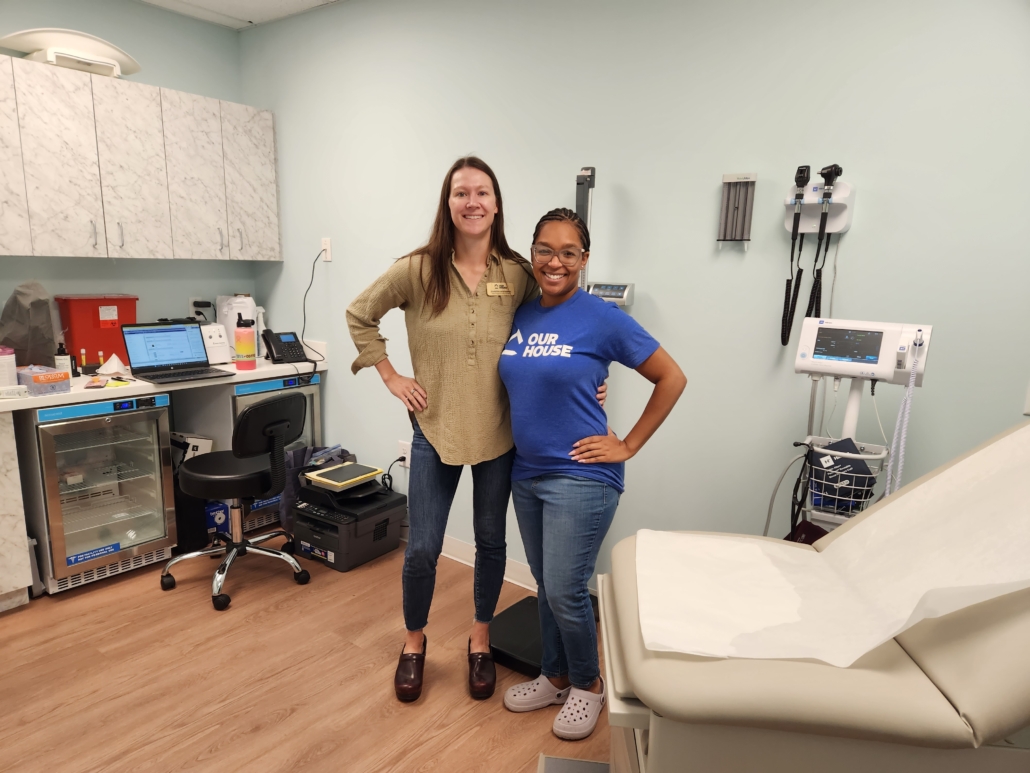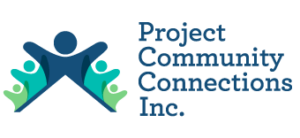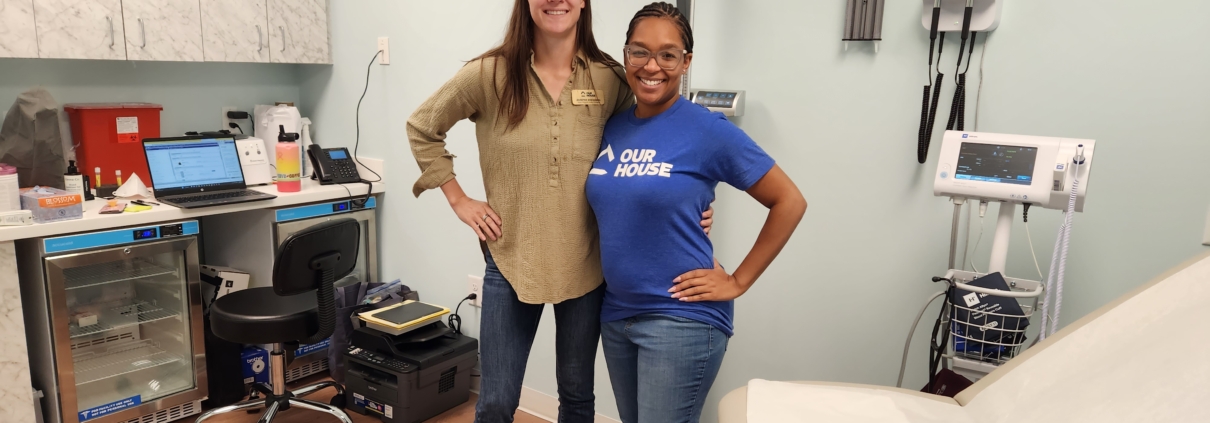Community from the Ground Up: Spotlight on Our House
Our House provides health care and improves resilience
302 Decatur Street in Atlanta’s Sweet Auburn neighborhood is much more than an address to PCCI. It is where we have worked for more than two decades. We know the routines of the neighborhood, its sources of pride and pain, its history and its hope. That knowledge informed every decision about Thrive Sweet Auburn, the mixed-use housing development we constructed on the site of our former office building, including the selection of occupants for the ground floor office and retail suites. This story is part of a series highlighting those partners and businesses that are invested in making Thrive a community.
Our House provides health care and improves resilience
“It’s too good to be true.”
According to Tyreesha Hubbard, that’s a common response from people when they experience the high-quality, free healthcare services provided by Our House. Hubbard, an experienced pediatric nurse practitioner with a doctorate degree in nursing practice, serves as the chief clinical officer for Our House. Founded in 1988, the organization provides a pathway to stability and independence for families experiencing homelessness through access to health care, early childhood education, housing and employment. The organization has developed a suite of interrelated programs to address the root causes of homelessness.
At Thrive Sweet Auburn, Our House operates a medical clinic, one of three in their network, that provides essential and relevant support for low-income families and families experiencing homelessness, including people who live at Thrive. “This is a new model for us,” says Tyreesha. “Our other clinics are in homeless shelters.”
The clinic is purposefully designed and operated to help people feel welcome and safe. According to Tyreesha, “Dingy spaces, long wait times, limited services–that’s not what we do. We want our patients to know their health is worthy of our attention and care.”
Our House works to remove the barriers that can limit access to health care. For example, their clinics operate on a fast-paced, walk-in service model, and they do not require extensive personal documentation to receive support. According to Tyreesha, “The way we approach care is to invert the burden off of the community we are serving by being intentional about every detail. Is this a true requirement that someone needs to do or is it an unnecessary administrative barrier? We work to remove those barriers.”
Currently open one morning a week, the Thrive Sweet Auburn clinic offers physical exams, reproductive health support, blood pressure and additional screenings, and other forms of care to community members in need. “We are still getting to know the community to understand their specific needs,” says Tyneesha, “and we are building trust so that people know we are here to help.”
Preventative care is essential to improving health outcomes, and that’s why in addition to individual services, Our House hosts educational workshops on topics that are most relevant to the people they serve, such as breast cancer awareness and the causes and symptoms of cardiovascular disease in women.
Looking ahead, Tyreesha says the partners hope to operate the clinic more often and serve more people. The Our House team are also working to secure funding to broaden their impact through training, such as mental health first aid, to other social service providers. “If we can increase the competency of others who interact with clients, we collectively improve the outlook for each person, each family, we serve.”
Margaret Schuelke, co-executive director of PCCI, says that kind of high-leverage approach is key to the shared goal of ending homelessness in Atlanta. “Making our city a better place for everyone means restoring community–and that is done through partnership,” says Margaret. “PCCI and Our House both take a holistic approach, which increases the likelihood that people will be able to establish stable, healthy, fulfilling lives.”




